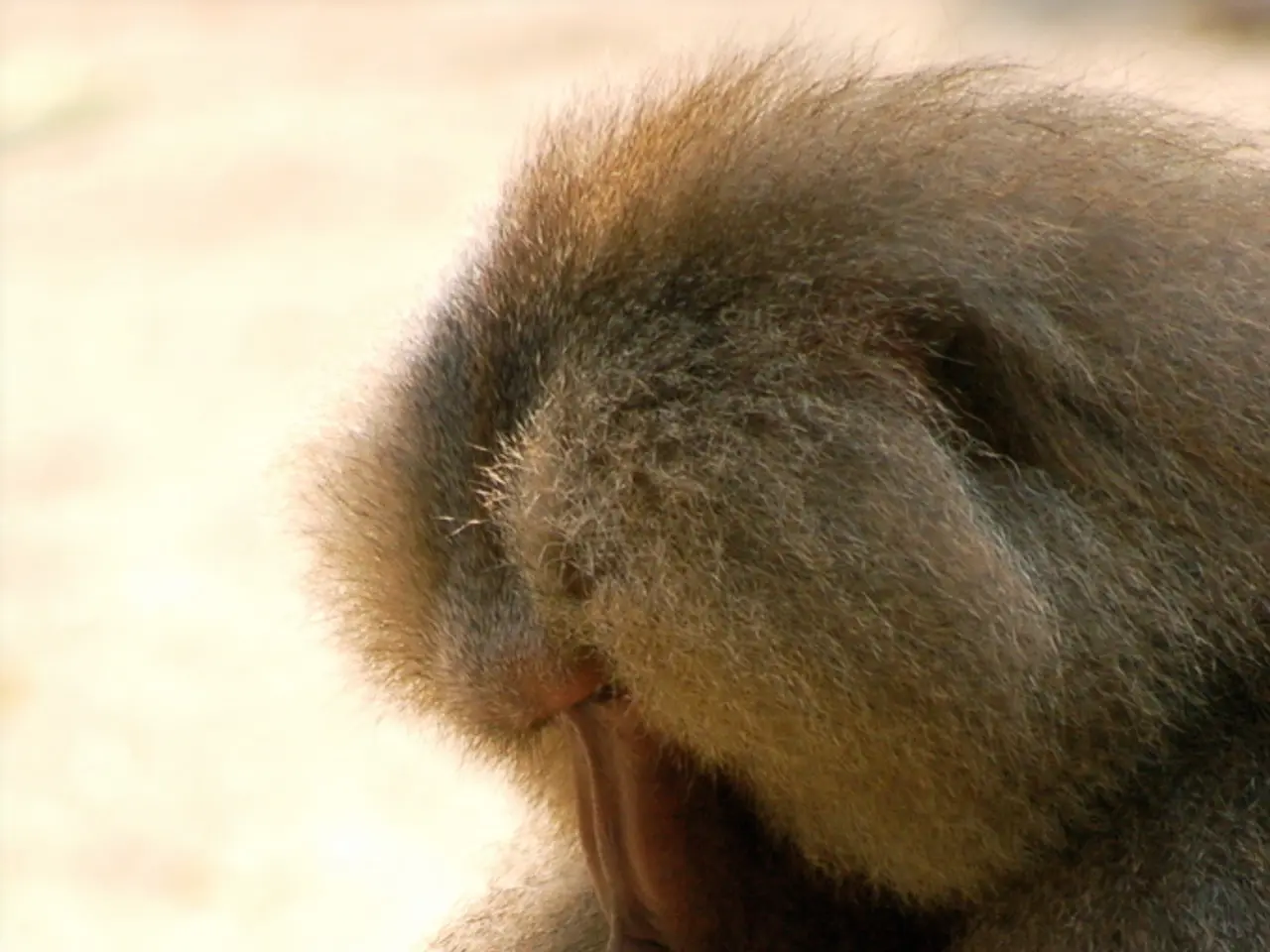Snoozing Simians: Orangutans' Power Naps in Response to Sleep Deprivation
Orangutans will resume resting after the disturbance.
Apes, just like us humans, value a good night's sleep. Orangutans typically slumber for about 12 to 13 productive hours. But when life – or the jungle – throws a curveball, these magnificent creatures pull a human move and catch some Z's during the day.
According to Alison Ashbury, a researcher from the Max Planck Institute for Behavioral Biology (MPI-AB) in Radolfzell, orangutans who don't catch their full eight hours at night will take a daytime nap. It's all about the hustle and bustle of the treetops, the hunt for food, solving problems, and maintaining social relationships, Ashbury explained. If Mother Nature dare to keep you up all night, these demands can add up, leaving gaps in the sleep schedule.
The Sleep Deprivation Hangover
So, what happens when an orangutan loses an hour or two of shut-eye? Well, in the spirit of productivity, they'll try to catch up on sleep with a power nap during the day. Imagine, if you will, climbing into bed when you've pulled an all-nighter – that's what orangutans do.
The researchers behind a study published in Current Biology observed that for each hour lost at night, an orangutan would catch an extra 5 to 10 minutes of sleep during the day. On 41% of observed days, orangutans snoozed at least once, averaging around 76 minutes of restful downtime. Bonus points if they managed to snag multiple naps!
Social Butterflies
But here's an interesting tidbit: Orangutans who shared their nesting spots with fellow simians snoozed less than their more solitary counterparts. In other words, the presence of other orangutans could hinder or interrupt sleep. Ever had a noisy housemate keeping you awake at night? Imagine being an orangutan dealing with the same!
The Cognitive Refresh
After a rough night, a short nap can do wonders for a human. It seems that orangutans can reap the same benefits. Meg Crofoot, co-author and director at MPI-AB, suggests that these naps aid orangutans in both physiological and cognitive recovery, much like in humans. More sleep, fewer troubles!
The study sheds some new light on the role and purpose of sleep. "Why do animals, including orangutans, spend such a significant time in this unconscious state?" researchers ask. After all, napping is no walk in the park for orangutans, requiring a bit of effort to build those cozy nests.
The Suaq Sleepover Spot
Researchers gathered their data by observing adult orangutans at the Suaq Balimbing Monitoring Station on the Indonesian island of Sumatra. They gathered evidence from a long-term dataset on nest use by 53 orangutans over 276 nights and 455 days between 2007 and 2021. Surprisingly, Suaq orangutans were more prone to building daytime nests compared to orangutans from other populations. These nests were simple and took only two minutes to construct yet provided a stable and secure place for a much-needed snooze.
Waking Up From the Nest
Spying on orangutans while they nap isn't the easiest task, according to the researchers. Every evening, an orangutan would build a nest high up in a tree by weaving and breaking branches for about ten minutes and adding a mattress of leaves. All quiet until things got started, and everyone settled in for the night. In the morning, it was time to spring out of bed – or the nest, rather. Researchers interpreted the quiet phase as a sleep phase, as it resulted in complete stillness and silence.
References
- Ashbury, A., et al. (2023). Orangutans compensate for sleep loss with increased daytime napping. Current Biology, [Link to Full Article]
- Knowledge, N., ....Is He Still Building or Already Sleeping? [Link to Source Article]
- Knowledge, N., ...Wound Healed with Liana Leaves Orangutan Self-Medicated with Healing Plant [Link to Source Article]
- Knowledge, N., ...Cognitive Recovery [Link to Source Article]
- Knowledge, N., ...Less Sleeping with Visitors [Link to Source Article]
- In light of the research published in Current Biology, orangutans employ vocational training, or daytime napping, to compensate for sleep loss caused by nocturnal sleep deprivation.
- As part of their health-and-wellness routine, orangutans, like humans, benefit cognitively and physiologically from these power naps, contributing to the ongoing scientific debate on the purpose and role of sleep.








